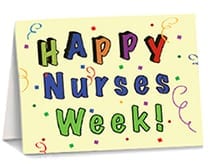Nursing informaticists: who we are and what we do
All around the world, May 12 is celebrated as International Nurses Day. It marks the end, in the U.S., of National Nurses Week—a time to honor and recognize nurses for their contribution to health care. May 12 is also the birthday of Florence Nightingale, the nineteenth-century English nurse who became legendary for her work in wartime field hospitals and, later, for her leadership in establishing nursing as a professional field. Her 198th birthday seems like a fitting place to begin this first in a series of articles on a relatively new specialty, one that we’ve come to depend on here at Lantana, and one that has emerged as an essential part of health care transformation—nursing informatics.

If still living, Nurse Nightingale might raise an eyebrow at hearing us call “new” an approach that she championed in her own time. And she’d be right. Broadly defined, nursing informatics is about combining the insights of nursing with standardized, empirical data to improve clinical practice—which is exactly what she pioneered. Long before computerized data entry, documenting clinical care was part of professional nursing. Nurses were taught, “If you didn’t document it, you didn’t do it.” Data analysis included evaluating bed counts, patient to nurse ratios, nursing time with a patient, or the time a patient spent in another department such as radiology or physical therapy.
The introduction of computerized clinical data recording around 1980 signaled opportunities for advancing clinical documentation through information science and led to the creation of nursing informatics as a specialized field; the adoption of the EHR in recent decades has accelerated its growth. Nursing informatics—the link between clinical knowledge and data analysis—has become essential and the range of its relevant concerns has vastly expanded. In clinical health care settings, responsibilities of nursing informaticists may include: quality improvement initiatives; HIT education and training; EHR implementation; regulatory practices; public and institutional policy development; and, in fact, just about anything aimed at improving patient outcomes and reducing medical costs.

Lantana’s nursing informaticist staff
Lantana provides services and software for standards-based health information exchange, and our NIs can be found engaged in almost all aspects of this work:
- improving the interoperability of national data infrastructure
- developing and implementing standards to support evidence-based practice
- supporting health care institutions to meet mandated requirements for submission of data
- creating research methodologies
- mapping external data definitions and terminologies
- electronic specification of clinical quality measures (eCQMs)
- eCQM testing
- providing private and web-based training sessions to address client needs
- engagement with colleagues at HIT events—like Casey Thompson’s scheduled presentation tomorrow (Florence’s birthday!) for the American Nursing Informatics Association.
Are you considering the specialty of nursing informatics? Are you ‘tech savvy’, a skilled communicator, enjoy working with data and are a team player? If so, then informatics might be the field for you. Some of the ways you might begin include: becoming a “champion user” of your site’s EHR; participating in industry meetings such as Health Level 7 workgroup meetings; joining the Healthcare Information and Management System Society; shadowing an informatics nurse; and one day—perhaps?—earning a degree in nursing informatics!
Be sure to watch for upcoming blogs about the individual journeys each of us took into nursing informatics.
